#but do i think we should put trans women in danger in order to combat that? absolutely fucking not
Text
we should not, in fact, bring back man-hating feminism
like you can say your post isn't a safe place for radfems and terfs all you want but you specifically said we should bring back man-hating feminism
man-hating feminism hates trans women of color first and foremost.
man-hating feminism hates muslim men, trans men, intersex people. and i say this again, most of all, man-hating feminism hates trans women of color more than anyone. (more on this point)
we do not need to bring that back. the idea of bringing that back should sicken you. it should anger you. it should be unthinkable that you would support that.
#swingset#do i agree that people on tiktok lamenting about not being housewives is a problem? yeah#do i agree that misandry is not a systemic issue like misogyny is and that mras are full of shit? yes#but do i think we should put trans women in danger in order to combat that? absolutely fucking not#i need to make this very clear because i think some of my mutuals who reblogged that post likely did not read it carefully enough#it does not matter if you say terfs and radfems aren't welcome on your page#because if you are using the rhetoric they use#you are inviting them into your community#whether you wanted to or not#so be more careful with your language please and thank you
64 notes
·
View notes
Text
Alex Recommends: May and June Books
I must apologise for the late arrival of this post. It should have been up days ago but I’ve been struggling to read much for the last month or so. My head has been very foggy and dark with all of the confusion, anxiety and hate that has been filling my news feeds and I’ve been filled with a desire to combat it. Before this month, I’d have run in the opposite direction from any kind of confrontation but recent events have given me the kick up the butt to actively do better. I’ve been calling out bigotry when I come across it and I’ve noticed that some people, notably my older relatives, haven’t necessarily reacted favorably to the changed, more outspoken Alex. It has been pretty daunting and I’ve worked myself up into fits of rage and tears several times over the last couple of months.
A lot of things have changed for me since my last Alex Recommends post. I’m currently temporarily living in Staffordshire with my boyfriend because my depression got too bad for me to stay at home for much longer. I missed him unbelievably much and I knew that spending some prolonged time with him would help -and it has. Both him and I have spent 12 weeks religiously following all of the rules, so we’re both extremely low-risk for catching and spreading COVID-19 and being together was something that we simply really needed to do. Please don’t hate me for it! In other news, I have also started writing again, which feels amazing. I’m now a few thousand words into a queer Rapunzel retelling that I have lots of ideas for. Maybe I’ll even post an extract or two, when I feel it’s ready to show you.
In the centre of the renewed energy of Black Lives Matter and the undeniable exposure of the horrors that is police brutality, the book blogging and BookTube worlds vowed to uplift Black voices. I wrote a very long, in-depth blog post full of Black-written books and Black book influencers. Please check it out to diversify your TBR and educate yourself on Black issues, which is what every white person should be doing now and always.
June was Pride Month and I tried my best to compile a series of recommendation posts in honour of it. These included gay, lesbian, bisexual, transgender, non-binary, ace, pansexual and intersex lists. I’ve had some great feedback on this, so I hope you find some fantastic new reads. It felt especially poignant to put them together the same year that one of my childhood heroes came out as an ignorant trans-exclusive feminist. As a lifelong Harry Potter superfan and someone who has repeatedly publicly supported Rowling in the past, I feel the need to clarify where I now stand. I do not support or agree with a single thing that she has said in recent times with regard to transgender people. I’ve never felt my own status as a cisgender female threatened by trans people wanting more rights or believed that children or women were at risk due to their existence.
I read her words more than once and struggled to find any semblance of the woman who wrote the books that have most defined my life. I’m hesitant to say that we can always successfully separate the art from the artist but I will say that it makes sense to me that the Rowling of 2020 is not the same Rowling that wrote Harry Potter. She was a destitute single mother when Philosopher’s Stone was published in 1997 and of course, she is now a million worlds away from that lifestyle. It breaks my heart but it makes sense to me that she has changed beyond belief because her life has changed beyond belief. I’m not and never would make any excuses for her recent behaviour and I have stopped supporting her personally but I will not be getting rid of my Harry Potter books and I will undoubtedly re-read them several more times. However, I am now hugely reluctant to buy any more merchandise or special editions of the books, which saddens me but at the moment, it feels right. There is no coming back for her from this and I will make a conscious effort to keep Harry Potter and Rowling away from my future content. It can be really tough to admit that the people you once really admired aren’t great humans but it’s something that we all have to acknowledge in this case, in order to move forward with our own quests to become our best selves.
It didn’t feel right to post my May recommendations last month as I didn’t feel comfortable promoting my own content in the midst of boosting Black voices. So today I’m bringing you a bumper edition of Alex Recommends. Here are 10 books that I’ve enjoyed since the start of May that I’d love to share with you. Enjoy! -Love, Alex x
FICTION: Little Fires Everywhere by Celeste Ng
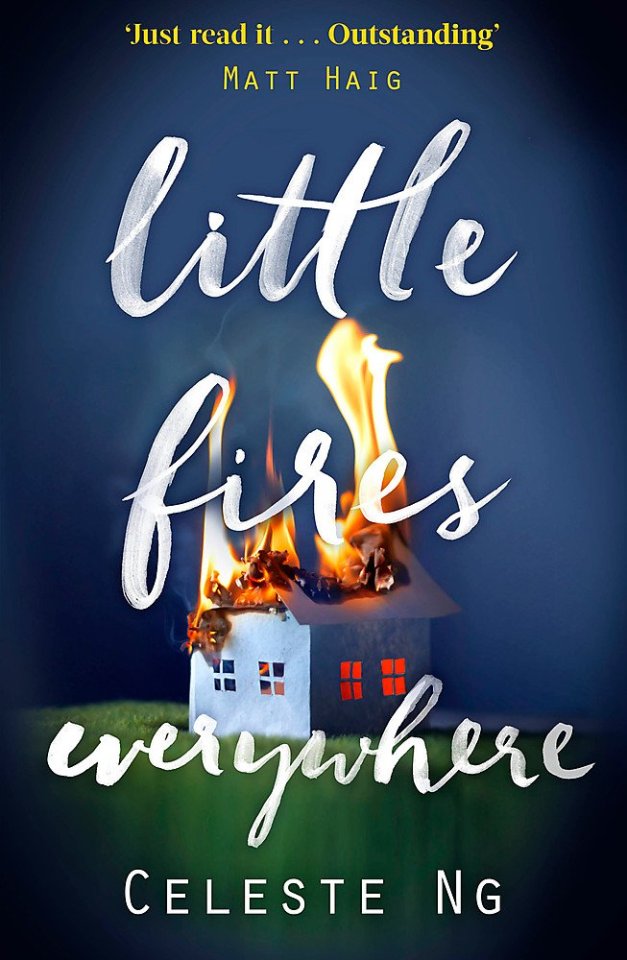
Set in the affluent neighbourhood of Shaker Heights, Ohio in the 1990s, two families are brought together and pulled apart by the most intense, devastating circumstances. Dealing with issues of race, class, coming-of-age, motherhood and the dangers of perfection, Little Fires Everywhere is highly addictive and effecting. With characters who are so heartbreakingly real and a story that weaves its way to your very core, I couldn’t put it down and I’m still thinking about it over a month after finishing it.
FICTION: Get A Life, Chloe Brown by Talia Hibbert
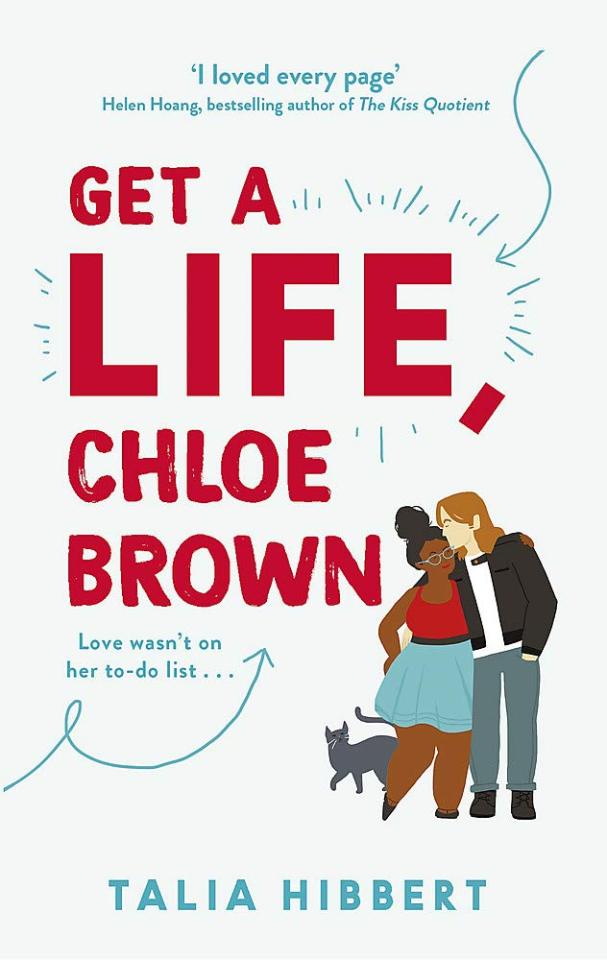
When coding nerd Chloe Brown almost dies, she makes a list of goals and vows to finally Get A Life. So she enlists tattooed redhead handyman and biker Red to teach her how. Cute, funny and ultimately life-affirming, this enemies-to-lovers rom-com was exactly the brand of light relief that I needed this month. The follow-up Take A Hint, Dani Brown focuses on a fake-dating situation with Chloe’s over-achieving academic sister and I can’t wait to get my hands on that.
FICTION: The Rearranged Life of Oona Lockhart by Margarita Montimore
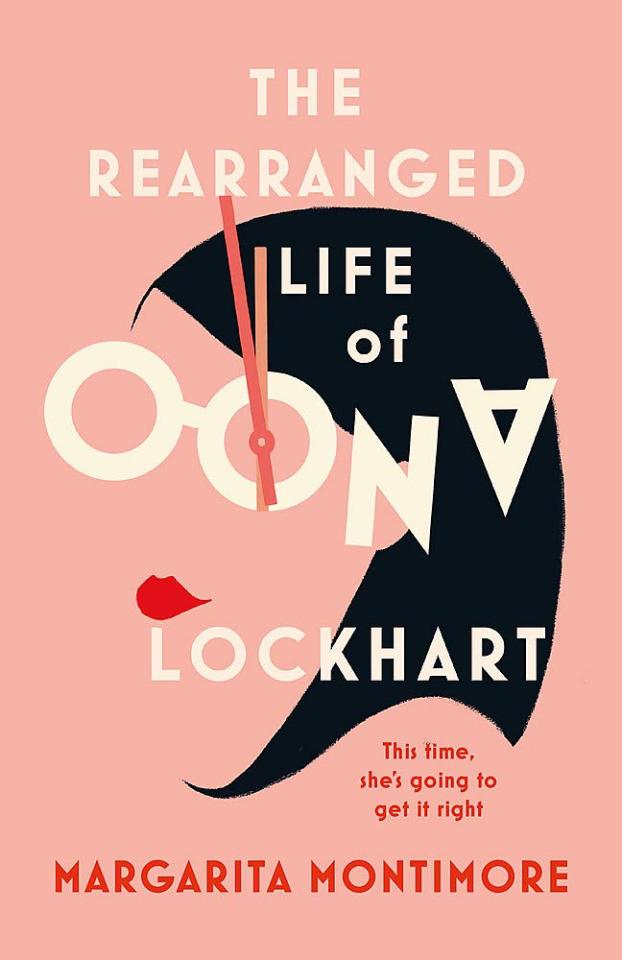
Just before her 19th birthday at midnight on New Year’s Eve 1983, Oona Lockhart finds herself inexplicably in 2015 inside her 51-year-old body. She soon learns that every year on New Year’s Day, she will now find herself inside a random year of her life and she has no control over it. Seeing her through relationships, friendships and extreme wealth, this strange novel has echoes of Back To The Future and 13 Going On 30 with a final revelation that I certainly never saw coming.
NON-FICTION: The Five by Hallie Rubenhold
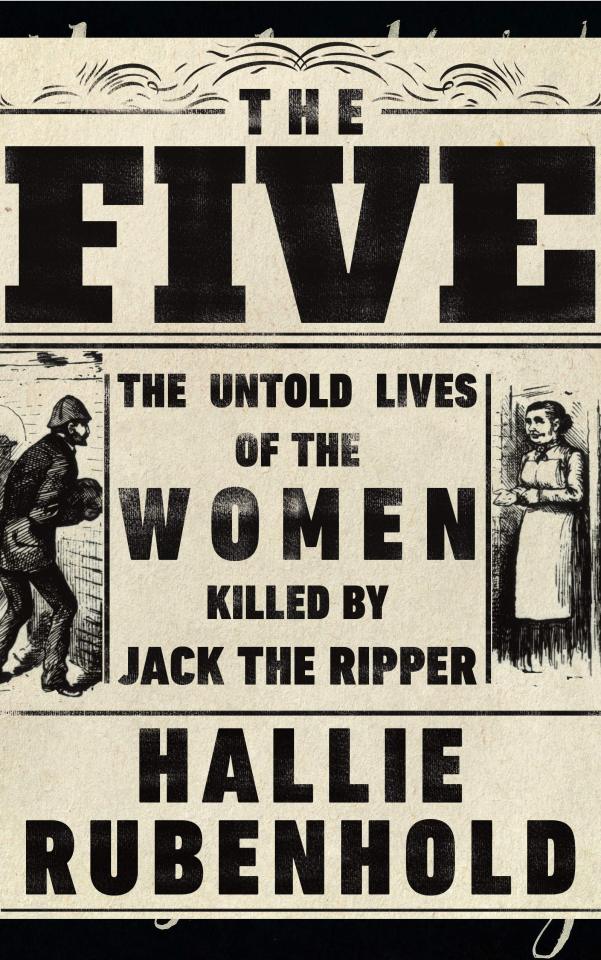
Atmospheric and engaging, The Five details the previously untold stories of Polly, Annie, Elisabeth, Kate and Mary-Jane -the women who lost their lives at the hands of Jack the Ripper. Full of fascinating research and heartbreaking accounts of what these women’s lives may have been like, Rubenhold paints a dark immersive portrait of Victorian London and gives voice to these tragic silenced lives. Although we can’t know for certain if these accounts are entirely accurate, they feel very plausible and in some ways, The Five exposes how little time has moved on, when it comes to the public portrayal of single, troubled women.
NON-FICTION: Unicorn by Amrou Al-Kadhi
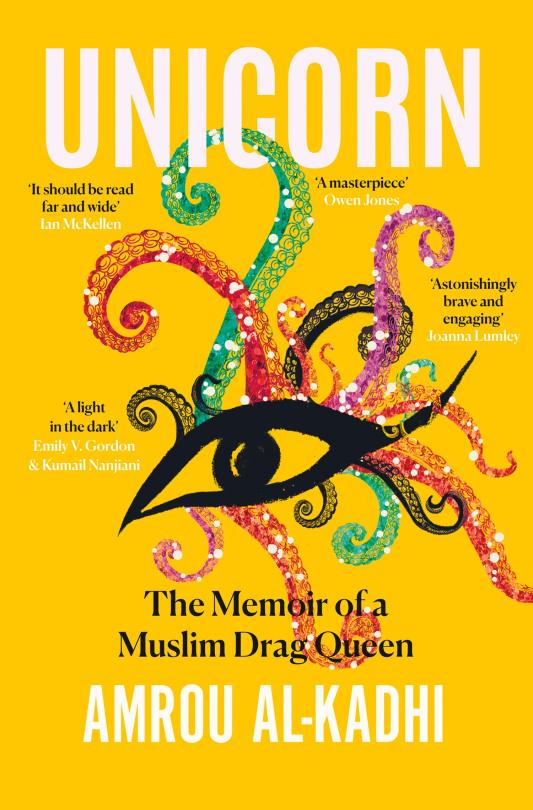
From a childhood crush on Macaulay Culkin to how a teenage obsession with marine biology helped them realise their non-binary identity, Unicorn tells the story of how the obsessive perfectionist son of a strict Muslim Iraqi family became the gorgeous drag queen Glamrou. Packed full of humour, honesty and heart, this book will give you the strength and inspiration to harness what you were born with and be who you were always meant to be.
MIDDLE-GRADE: The Super Miraculous Journey of Freddie Yates by Jenny Pearson
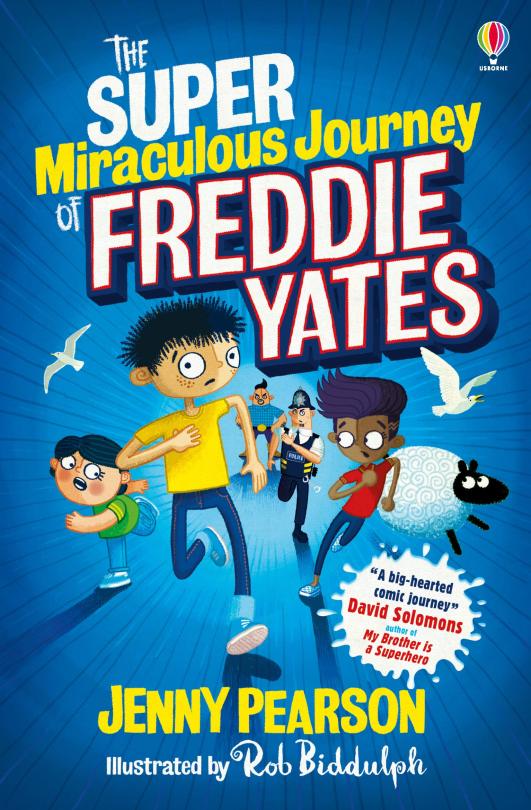
When fact-obsessed Freddie’s grandmother dies, he discovers that the father he has never met may actually be alive and living in Wales. So he has no choice but to grab his best friends Ben and Charlie, leave his home in Andover and go to find his dad! I laughed so many times during this madcap adventure and I know the slapstick crazy humour will hit the middle-grade target audience just right. It’s also a wonderful depiction of small town Britain with a focus on the true meaning of family.
MIDDLE-GRADE: A Kind Of Spark by Elle McNicoll
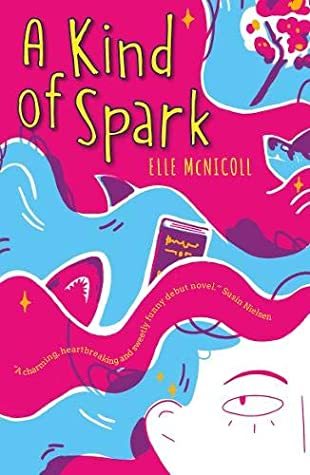
When Addie learns about her hometown’s history of witch trials, she campaigns tirelessly to get a memorial for the women who lost their lives through it. This wonderfully beautiful novel gives a unique insight into the mind of an 11-year-old autistic girl with a huge heart. Busting myths about neurodiversity while tackling typical pre-teen drama, you’ll laugh, you’ll cry but most of all, you’ll close the book with a huge smile on your face.
HISTORICAL FICTION: Hamnet by Maggie O’Farrell
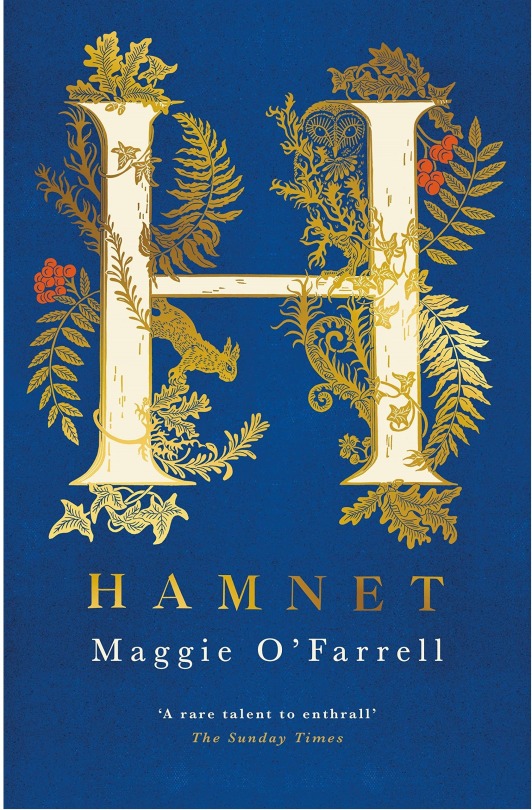
In 16th century Warwickshire, Agnes is a woman with a unique gift whose relationship with a young Latin tutor produces three children and a legacy that lasts for centuries. This enchanting, all-consuming account of the tragic story of Shakespeare’s lost son, the effects that rippled through the family and the play that was born from their pain will send a bullet straight through your heart. Wonderfully researched and beautifully written, Hamnet is worth all of the hype.
HISTORICAL FICTION: The Mercies by Kiran Millwood Hargrave
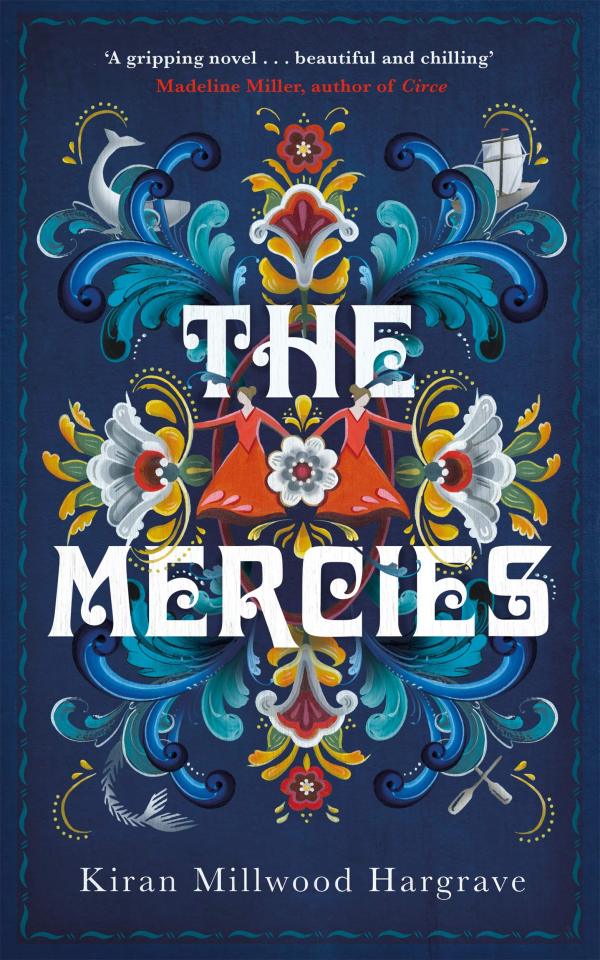
When a vicious storm kills most of the men of Vardø, Norway, it’s up to the women to keep things going but a man with a murderous past is about to come down with an iron fist. At the heart of this dark tale of witch trials, grief and feminism, two women find something they’ve each been searching for within each other. Gorgeously written with a fantastically slow-burning queer romance, Kiran Millwood Hargrave’s first adult novel is an addictive, atmospheric read with a poignant, tearjerker of an ending.
SCI-FI: Q by Christina Dalcher
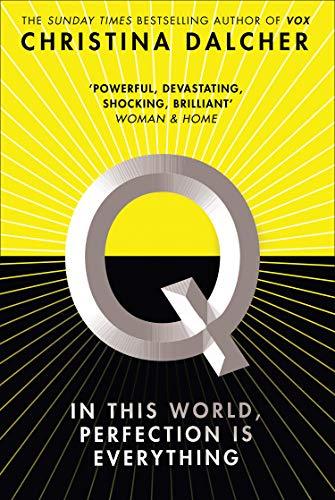
When one of Elena’s daughters manages to drop below the country’s desired Q number, she is sent away to one of the new state schools and Elena is about to find out something she’d really rather not know about the new system. Packed full of real social commentary and critique of life as we know it while painting a picture of how things could be even worse (yes, really!), this pulse-racing, horrifying sci-fi dystopian gripped me from the first page and refused to let me go.
3 notes
·
View notes
Text
10 things we learned at Brookings in October
New Post has been published on http://khalilhumam.com/10-things-we-learned-at-brookings-in-october-2/
10 things we learned at Brookings in October

By Olivia Tran, Fred Dews In October, voting in the U.S. presidential election began nationwide, with early voting hitting new records in some states. Brookings remained busy with experts publishing research on a range of policy issues including the election, trans-Atlantic relations, to how the next presidential administration can reduce polarization in America. Here is a selection of 10 items from the month for your consideration.
1. HOW THE NEXT PRESIDENTIAL ADMINISTRATION CAN CONFRONT AMERICA’S DIVISIONS
E.J. Dionne, Jr. and Melissa Rogers provide analysis of how “misunderstanding and mistrust have reached toxic levels” in the U.S., and suggest how the president sworn into office in 2021 can address these critical issues. In their report from the Center for Effective Public Management at Brookings, they look at the causes of polarization, including religion. The next president, Dionne and Rogers argue, must recognize the immense power of religious leaders in sharing responsibility to seek solutions together. “When the next administration takes office, it will confront a pandemic, the scourge of systemic racism, a deep economic recession, and a dangerously warming planet,” they explain. “Government must act boldly in all these spheres, yet government will not succeed alone.”
2. TRANS-ATLANTIC SCORECARD ON THE EVE OF THE US PRESIDENTIAL ELECTION

A new edition of the Trans-Atlantic Scorecard produced by the Center on the United States and Europe at Brookings evaluates the state of U.S. relations with Europe overall, plus with five key countries and the European Union itself. As Center Director Thomas Wright observes, U.S.-European relations have remained strained with slight upward or downward ticks in only a few areas. “Facing a historic presidential election,” Wright says, “the potential outcome of which could set the United States and Europe on dramatically different paths – a ‘wait and see’ mood combined with a sense of anxious optimism regarding the prospect of a Biden administration has descended on the trans-Atlantic relationship.”
3. HAS TRUMP REALLY DONE MORE FOR BLACK AMERICANS THAN ANYBODY (EXCEPT LINCOLN)?

Rashawn Ray and Keon Gilbert deconstruct Trump’s repeated claim, “I have done more for Black Americans than anybody, except for the possible exception of Abraham Lincoln,” by exploring several key areas where Black Americans have been failed by Trump’s policies, including the economy, implicit bias training, criminal justice reform and policing, judges and the courts, COVID-19 response, and affordable health care. “What do you have to lose?” Trump asked Black voters in 2016. “Well,” Ray and Gilbert respond, “what Black people have to lose are their lives as well as those of their loved ones if stuck with four more years of a Trump administration.”
4. YOUNGER GENERATIONS WILL TRANSFORM AMERICA’S ELECTORAL FUTURE

The electorate and the American political landscape will inevitably change as younger generations step up to create a larger share of eligible voters. Rob Griffin, William Frey, and Ruy Teixera produced a series of future election simulations to investigate how America’s youngest generations, including Millennials and Generation Z, which are both more racially diverse than older generations, appear to be more Democratic leaning than their predecessors were at the same age. “The projected growth of groups by race, age, education, gender and state tends to be more robust among Democratic-leaning groups, creating a consistent and growing headwind for the Republican party,” they write. “This will require the GOP to improve their performance among key demographic groups, election after election, just to keep their vote share competitive.”
5. SOCIAL SECURITY BENEFITS FOR POOR CHILDREN CAN COMBAT US CHILD POVERTY
Melissa Kearney explores the idea of abolishing child poverty in the U.S. by giving poor children Social Security benefits, similar to benefits given to older Americans. She points out that COVID-19 has exacerbated the need to “prioritize the protection of our nation’s most vulnerable children.” The long-term consequences of low-income and special needs children in virtual learning, combined with childhood hunger and maltreatment, will have lasting effects on these children and the nation. “If we gave each child living in poverty the average Social Security benefit received by a Social Security recipient age 65 and over – that’s $17,112 annually,” Kearney argues, “the rate of childhood poverty in this country would fall to less than 1 percent.”
6. AN IMMIGRATION BAN COST FORTUNE 500 FIRMS $100 BILLION
On June 22, 2020, President Trump issued an executive order suspending new work visas for skilled immigrants, banning nearly 200,000 foreign workers and shutting down the pipeline for a large workforce for Fortune 500 companies. In their new report, Dany Bahar, Prithwiraj Choudhury, and Britta Glennon find that the ban “statistically and economically significantly caused negative [cumulative average abnormal returns] of up to 0.45 percent, the equivalent of over $100 billion of losses, based on the firms’ valuation before the event.” These results were pronounced for American companies that had maintained or increased their demand for skilled immigrant workers.
7. PLAYFUL LEARNING PROMOTES 21st-CENTURY SKILLS IN SCHOOLS
A new report from Policy 2020’s Big Ideas series explores a new framework for education reform based on a playful learning approach centered on the 6 Cs: collaboration, communication, content, critical thinking, creative innovation, and confidence. Authors Kathy Hirsh-Pasek, Helen Shwe Hadani, Roberta Golinkoff, and Elias Blinkoff explain the critical role of playful learning in all stages and discuss how the 6 Cs can be incorporated in the classroom. “It is time for a scalable, evidence-based education reform that puts student engagement, educator expertise, and equity at the center,” they write. “Specifically, we recommend adopting a method for keeping students engaged in the classroom, reflecting the latest evidence on how children learn best.”
8. CHINA’S GROWING ROLE IN GLOBAL INSTITUTIONS

The final series of papers from the Global China initiative analyzes China’s increasingly larger role in influencing international institutions, norms, and rules, and what other nations should do to answer Beijing’s ambitious efforts. The new papers, introduced by Tarun Chhabra, Rush Doshi, Ryan Hass, and Emilie Kimball, examine China’s approach to global governance, including its growing power to bend rules and norms in its preferred direction, while America has stepped back in recent years. The papers provide policy prescriptions for how the U.S. can be more effective at protecting its status and interests in the world. “In some areas, such as climate change, the [paper] authors call for the United States to explore deeper collaboration with China… In other areas, such as democracy promotion, the authors urge the United States to pursue a more competitive approach to blunting China’s efforts to advance its ambitions.”
9. WHY COVID-19 HAS BEEN ESPECIALLY HARMFUL FOR WORKING WOMEN

Nicole Bateman and Martha Ross examine COVID-19’s especially negative effects on working women, for reasons ranging from being disproportionately represented in low-wage jobs to childcare systems not meeting the needs of working mothers. COVID-19 has increased the pressure on working mothers who shoulder both work and family obligations with access to solutions that provide only temporary support. “COVID-19 is hard on women because the U.S. economy is hard on women,” they observe, “and this virus excels at taking existing tensions and ratcheting them up.”
10. RETIREMENT TONTINES: AN ALTERNATIVE SOURCE OF RETIREMENT INCOME?
Preparing for retirement poses complex challenges, from accumulating enough savings during working years to spending wisely after retiring. The latter challenge includes the problem of not running out of income as aging continues. J. Mark Iwry, Claire Haldeman, William Gale, and David John analyze a new way to manage income in retirement: a tontine. “Tontines are investment pools where members commit funds irrevocably and where the resources and income claims of members who die are given to members who survive,” they explain. Tontines can be adapted to fit a variety of financial structures, they add, but were outlawed “in response to corrupt insurance company management.”






0 notes
Photo
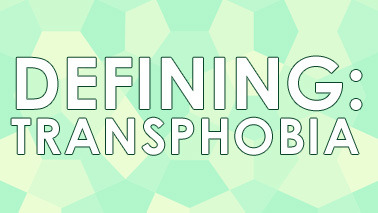
Defining: Transphobia
By Alaina Monts
Welcome to another installment of our “Defining” series, where we unpack various terms and identities. Do you have a word that needs defining? Let us know!
Content Warning: This post includes discussion of violence against trans people.
Define It
Transphobia is the hatred of transgender people. Transphobia is typically accompanied by the belief that trans people don't deserve respect or rights. Choosing to marginalize someone because they are transgender is a form of transphobic violence.
Explain It
While transphobia's root word, phobia, implies fear, transphobia has little to do with fear and everything to do with hate. To be transphobic is to believe that there is something inherently wrong with being transgender, and that trans people are lesser than cisgender people. Transphobia relies on the belief that a person's gender should match the sex they were assigned at birth. It ignores the way that both gender and sex are constantly constructed and performed every day, and instead implies that these are static, pre-determined qualities.
One of the most prevalent types of transphobia in Western cultures is transmisogyny: the specific hatred and disgust directed at transgender women. Transmisogyny is also perhaps one of the most dangerous types of transphobia as well; it's one of the reasons why many trans women are overwhelmingly poor, homeless, have statistically short life spans, and face fear of violence and death more than trans men and cis people do.
Transphobia is violent, and sometimes that violence is overt and easy to spot. For example, there have been over 20 murders of transgender people in 2017 so far. All of these people were killed because they were transgender. The Stonewall Riot—considered by many to be the first major moment in the LGBTQIA rights movement—was started because transgender women of color were reacting to the transphobic violence of the NYPD.
Physical violence isn't the only way a person can be transphobic. Purposefully using the wrong pronouns to talk about someone is an act of transphobia. Legislation banning people from using the bathrooms that match their gender is transphobia. Whether or not you physically harm someone, creating an environment where trans people don't feel safe and protected is a form of transphobia.
Sometimes it's not as easy to spot transphobia because, unfortunately, it's so prevalent in Western culture. Transphobia goes hand in hand with cissexism; an assumption that all people are the gender they "appear" to be. When you assume that a person with breasts is a woman or a person with an Adam's apple is a man, you're perpetuating cissexism and transphobia. This sort of everyday transphobia is harder to combat because it seems to be everywhere—think of how many television shows still use a man in a dress as a gag. When popular culture does things like this, they perpetuate the idea that trans people are pretending or playing a role, instead of living their truth. These seemingly harmless jokes lead to the ostracization and death of many trans people.
We combat transphobia by making people feel welcome. No one should be making assumptions about people's genders, or jokes about how someone dresses or sounds. We need to encourage lawmakers to pass legislation that keeps the most vulnerable protected, instead of endangering their lives even more. To quote the TSA, "If you see something, say something." Don't let friends and family members get away with casual transphobia—ally yourself with trans folks by correcting cis people who mess up.
Debunk It
Transphobia is rational.
It is not. Unless we are intimate with a person, there is no logical need for us to know what someone's genitalia or reproductive organs look like. Transphobia, more than anything, is nosy. It's a desire to know what a person's junk looks like in order to determine something you consider essential about that person. Genitalia doesn't tell us anything essential about a person, so needing to know about someone's genitalia before deciding whether or not you can respect them and treat them like human beings is irrational.
Transphobia keeps people safe.
Part of the way people rationalize transphobia is by arguing that it keeps people safe. This is inherently false. A pervasive myth right now is that transphobia, especially transphobic legislation, will protect (cisgender) people from sexual assault. But statistically, all these laws do are put transgender people in more danger. There is no proof that forcing a trans person to disclose their status will keep anyone safer. There is proof, however, that forced disclosure will put transgender people in danger. A quick news search will show you that most trans people who've experienced violence at the hands of a cis person dealt with it after the cis person found out that they were trans—sometimes even when this information was voluntarily shared. People who think their transphobia will keep them safe are kidding themselves.
LGB people can't be transphobic.
Transphobia is not just something heterosexual people do; cisgender LGB folks can be transphobic. Cis LGB folks often equate a person’s gender to their genitalia, and will say things like "I'm a gold star lesbian, I've never seen a penis!" as if women only can have vaginas or "I'm gay, I wouldn't even know what to do with a vagina!" as if men can only have penises. The cis LGB community even perpetuates transphobia with casual comments like "bisexual people are attracted to men and women," ignoring a wide range of nonbinary transgender identities. Cis LGB people also sometimes appropriate language that becomes a slur when it's used by those who don't identify as trans.
Only trans women and men experience transphobia.
The fact that there's so little discussion about nonbinary genders is, in and of itself, a form of transphobia. The constant erasure of those who don't identify as a binary gender (i.e. male or female) is transphobic violence. While trans women and men often experience violence because their gender appears "wrong" to some people, nonbinary trans folks often experience violence because their genders are unreadable. Being able to place bodies into categories of man or woman is a large part of how our societies have decided to organize themselves. When people don't fit into either category, they become unrecognizable, dangerous, and susceptible to violence.
Finally, for a discussion of what homophobia is, check out Defining: Homophobia!
Be sure to check out the rest of The Defining Series right here!
***
Click here to read about our brilliant contributors!
26 notes
·
View notes
Text
Overwhelmed *CW- Abortion & Politics*
It’s all like a train wreck that I just can’t look away from... It’s come to a point where talking politics can be triggering, hence my content warning above.
Two days ago a sex educator who I used to socialize with occasionally, wrote a piece about her recent abortion. I also came across a buzzfeed article with 42 other women’s stories about abortion. It was the anniversary of Roe v Wade.
The next day, DJT reinstated a policy that hurt reproductive rights for women around the world.
In response, I set out to write about my own abortions. Yes, plural. What started out as a piece full of links about the laws in order to give context, turned into over 2100 words rehashing how my ability to make the choice to terminate 2 pregnancies then have my tubes tied within a year of my 21st birthday impacted the path that my life took. I’m torn about posting it all here.
Once again, politics are PERSONAL in a way that just stirs up all kinds of emotions for me. Strangely, it brings me back to my 2nd marriage when the war in Iraq was the political hot button of the day and I was married to a soldier in a combat unit. I simply could NOT engage in the political discourse because it was too personal. My husband’s life was on the line daily and no amount of discussion could change that. The only issue that really mattered to me was whether or not the funding was there so that he would have the best equipment possible in the hopes that he could come home safely.
He came home, went again and came home damaged inside and out. To this day I still have nightmares about that time in my life... But as usual, I digress.
Once again, I am a military spouse. I managed to miss his time in the sandbox and he now goes to work in an office or classroom. His drive to work is the most dangerous thing about his day. (Seriously... he was almost t-boned yesterday by a driver blowing through a red light at 50 mph+)
The part of it all that’s the same, and feels even more heavy than before is the temporary nature of our life. We thought this move would be our last before “Fort Livingroom” but were quickly put in this limbo of how long will be be here?
We still dove in head first with the communities we could get involved with. In this conservative little town that meant PFLAG, a non-theist group and for a time, the local kink group. In other words- all groups that could negatively impact my chances of getting a job around here if I were to list them on my resume.
I know that what I do matters.
I know I could do more.
I know that there are a lot of things that I can not help no matter how much I may want to.
I am not a resident here because we didn’t anticipate staying long enough for it to be worth making it official. I don’t have a “home state” where I’m registered to vote because I didn’t get married until after leaving Texas (the closest thing to “home” that I’ve ever had.) and as much as the local politics need attention, the conservative nature of this town is just so foreign to me that I almost can’t wrap my head around it all.
Bottom line is that it’s overwhelming to see all of the awful things that are happening and to feel like all I can do is brace myself for the next explosion. Yesterday it was reproductive rights, today it was the Keystone XL and Dakota Access Pipeline.
LGBT rights are being pushed back against in several states, and we now have a conservative government and an Orange Toddler with pen in hand, ready to sign whatever they put in front of him.
We have an open seat on the Supreme Court and body of “elected” officials in charge of approving the appointees for that position who believe in “one man, one woman” marriage, believe that genitals are what determine gender, and think that (almost exclusively male) politicians have more right to dictate reproductive rights and sexual health than the women whose bodies are in danger of being taken hostage by so-called “Pro-life” groups.
Part of me feels like I have too much time on my hands and not enough actual work to do. Another part of me feels like I just can’t look away from this train wreck long enough to focus on the projects I have on my plate- projects aimed at educating others about issues that need attention regardless of the other political disasters we seem to be heading towards.
My Mr. had a nice, late morning today that we spent together in bed on our respective devices. Just as my grandparents used to sit at the kitchen table reading the newspaper aloud to each other, that is how we start discussions about the issues in the news... um, I mean newsfeeds. At one point I literally just pulled the covers up and said, “Ugh! Wake me in four years!”
One of the hardest parts about it is the feeling of being unable to really talk about my emotions anywhere other than here (and with My Mr.).
Prof is literally the closest thing to a real friend that I have here who is on the same page, politically. And she’s got her little hellspawn to deal with on top of her job. Even then, she tries not to talk about politics and feminism in social settings because it IS her job to talk about such things in her work.
Cookie, for as much as we love her... is a typical white woman who supports Trump. She’s made statements about “getting over it” and that we just need to move on. When she was over for the Patriots game this weekend she literally said, “I don’t know how anyone can call me racist!” then she showed me a picture of a black woman who was one of her “best friends since grade school.” In other words- look, I can’t be racist! I have a black friend! And I just don’t have the energy to try open her eyes. I did a lot of that when talking about the trans issue (her boyfriend has a trans child who they have very minimal contact with) and even though she said that I did change her mind on that subject, I don’t think that this issue will work the same way.
Aside from My Mr. and My Kiddo, my small “blood family” fully supports DJT and they often make downright offensive remarks about issues that really matter to me. On that note- I’m really torn about reminding my mother about her own abortion and asking her to think about what life would have been like had she not had one... or how different it could have been had she had LEGAL access to the procedure. I don’t know how she actually obtained hers. She was 16 which means it was pre-Roe v Wade when she got pregnant by her high school sweetheart.
It’s just past 12:30pm and I *should* do something productive with my short day. Truth be told, I’m probably just going to clean the kitchen then get on the couch and binge watch more Netflix. I’m feeling kind of pathetic at the moment...
1 note
·
View note